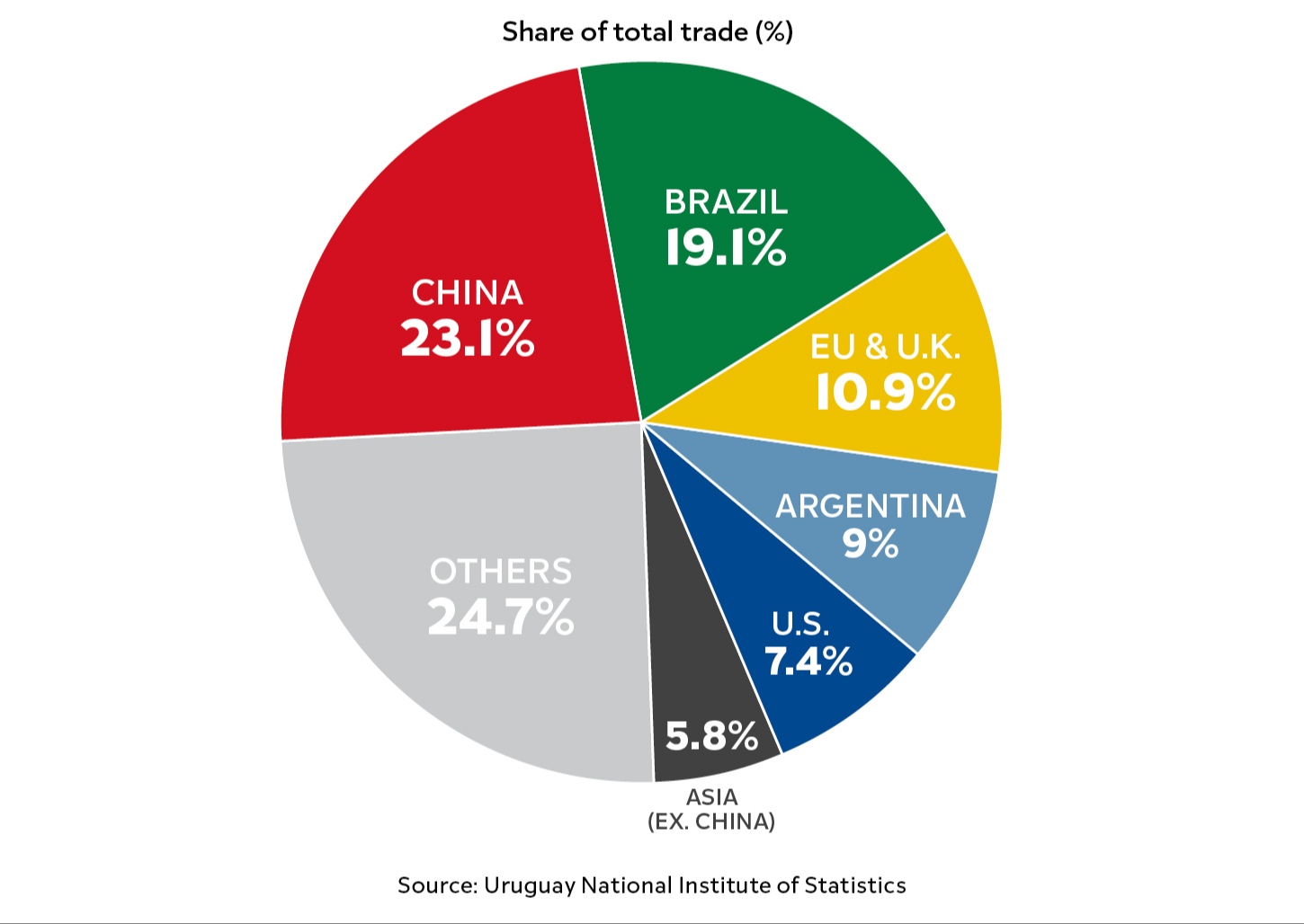
Uruguay’s main trading countries
Uruguay is a small but economically dynamic country in South America, with a well-established trade network that connects it to major global markets. Its main trading partners are key players in both regional and global trade, reflecting Uruguay’s strategic use of its agricultural, forestry, and industrial sectors. Below is an overview of Uruguay’s primary trading countries:
1. Brazil
Brazil is Uruguay’s largest trading partner, thanks to their geographic proximity and shared membership in the MERCOSUR trade bloc. Exports to Brazil typically include beef, dairy products, and manufactured goods. Brazil is also a major source of imports, such as machinery, vehicles, and industrial equipment.
2. China
China has become an increasingly important trade partner for Uruguay, especially as an export market. The country is a top buyer of Uruguayan beef, soybeans, and cellulose (used in paper production). Chinese machinery, electronics, and textiles dominate Uruguay’s imports, highlighting a complementary trade relationship.
3. European Union (EU)
The European Union is a critical trading region for Uruguay, particularly for its agricultural products. Key exports to the EU include beef, wine, wool, and leather. Countries like Germany, the Netherlands, and Italy are significant importers of Uruguayan goods. In return, Uruguay imports pharmaceutical products, machinery, and vehicles from the EU.
4. United States
The United States is another important trading partner, especially for goods like beef, soybeans, and wood products. Uruguay also benefits from U.S. imports of technology, vehicles, and industrial equipment. Strong diplomatic and trade ties support the flow of goods and services between the two nations.
5. Argentina
Argentina, another MERCOSUR member, plays a vital role in Uruguay’s trade. Exports to Argentina often include processed food products, dairy, and chemicals, while imports consist of vehicles, fuels, and machinery. Shared cultural and economic ties bolster trade between these neighbors.
6. Chile
Chile is a significant partner within South America. Uruguay exports beef, dairy products, and agricultural commodities to Chile, while importing wine, fruits, and technological goods. This partnership benefits from favorable trade agreements.
7. Other Asian Markets
Uruguay has been expanding its trade with countries like Japan, South Korea, and India. Beef, wood, and soy products are among the most exported items to these nations.
Trade Composition
Uruguay’s export economy relies heavily on primary goods such as beef, soybeans, dairy, wool, and wood products. The forestry sector, particularly cellulose, has been expanding rapidly, contributing to increased exports to global markets. Imports largely consist of machinery, technology, vehicles, and fuel.
MERCOSUR and Global Trade
Membership in MERCOSUR (Southern Common Market) is a cornerstone of Uruguay’s trade policy. It fosters economic cooperation and trade integration with neighboring countries like Brazil, Argentina, and Paraguay. Beyond regional ties, Uruguay maintains a diversified global trade strategy to ensure its economic stability and growth.
Conclusion
Uruguay’s trade relationships are characterized by a balance between regional partnerships within South America and growing global connections with key markets like China, the EU, and the U.S. This diverse network ensures Uruguay remains a competitive player in international trade, leveraging its strengths in agriculture and forestry to maintain economic resilience.




Leave a Reply